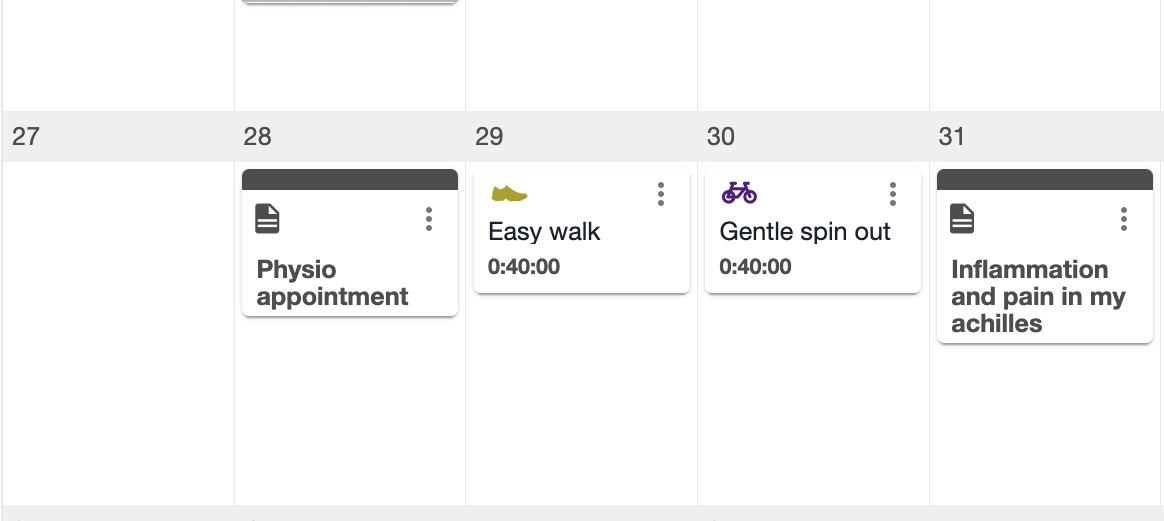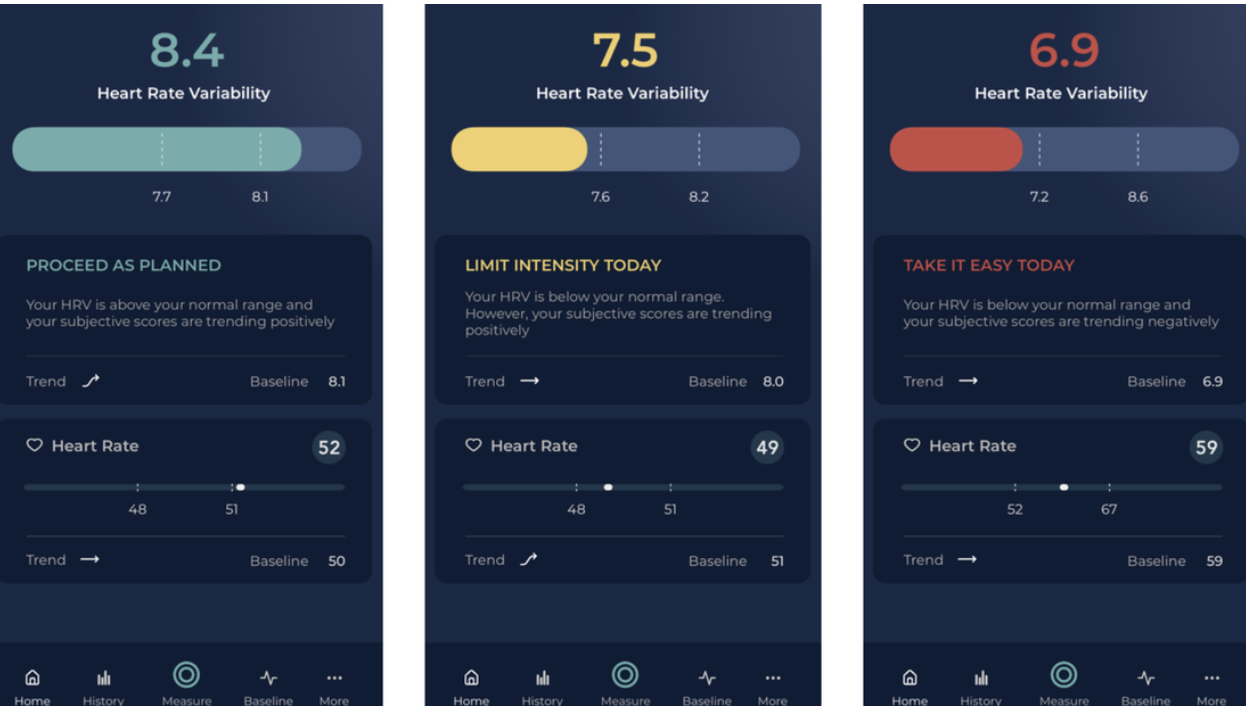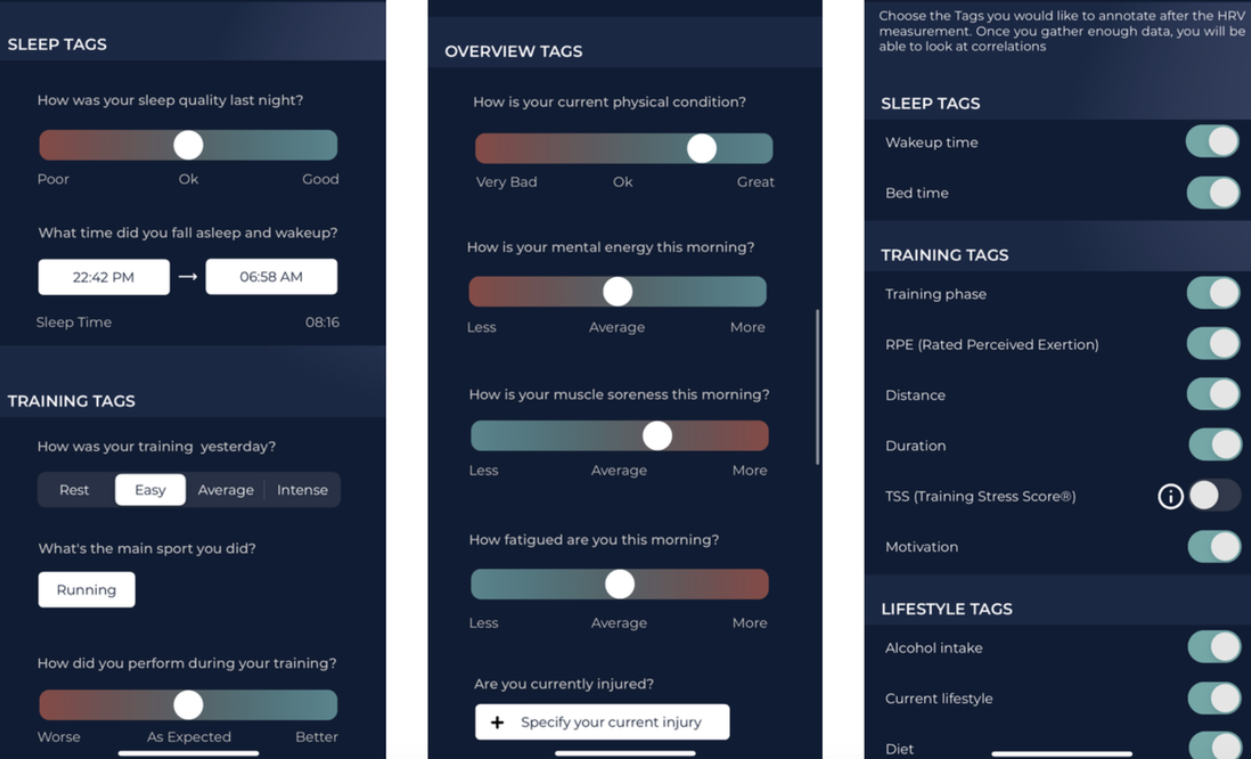|
As a personal trainer and coach, I understand the frustration that comes with being sidelined by an injury. However, I firmly believe that with the right approach, injury recovery can be a period of growth and progress. I was prompted to write this by the experience of some of my athletes who have niggling injuries at the moment, but mostly as I witness the recovery of my partner after his total knee replacement (he's doing amazingly by the way ;) ). So I’m going to share some of my personal experiences on how you can use data to facilitate your recovery journey and come back stronger than ever. I will also illustrate just how important that downtime can be! Tracking Injury-Specific Metrics Recovery isn't a linear process, and tracking injury-specific metrics can provide valuable insights into your progress. From assessing your daily injury level to monitoring soreness, mood, fatigue, motivation, sleep quality, and more, keeping a record of these metrics can help you and, those supporting you, to make informed decisions about your rehabilitation programme. Timing Your Metric Tracking Choosing specific times of the day to track your metrics can offer deeper insights into your recovery patterns. Whether it's recording how you feel first thing in the morning or tracking changes throughout the day, consistency is key. Utilise training logs or tracking apps like Training Peaks to streamline this process and ensure you capture relevant data points. Documenting Physio and Doctor Visits Physio and rehabilitation sessions are integral parts of the recovery process. By documenting these visits in your training diary or app, you create a comprehensive record of your journey. Try to include details such as exercises performed, resistance levels, and any notes on progress or setbacks. This information serves as a valuable reference point for both you, and your coach if you have one. Logging All Activity Even when you're not engaged in structured training, every activity counts towards your recovery. Whether it's completing physical therapy exercises or engaging in low-impact workouts like walking or swimming, logging these activities helps you stay accountable and track progress. Make notes on how each exercise feels and any observations that may impact your recovery. Monitoring Recovery Using Technology Incorporating technology into your recovery process can provide valuable insights. Devices that measure heart rate variability and resting heart rate offer objective data points to gauge your recovery status. Additionally, paying attention to your rate of perceived exertion in everyday tasks can provide valuable cues about your body's readiness for exercise. For female athletes I am also a big fan of Wild.AI as an app that captures subjective as well as objective data, including hormonal stages to help you navigate your recovery. Beware of too much too soon
It can be very tempting to feel you are starting to feel better and dash back into your usual training regime, and some to try and make up for lost ground. But this can be a precarious stage of your recovery, so beware! Your body will be your best guide here – you should be slowly building things back up and if things flare up (swelling, pain etc) the day after then that is your body telling you it was too much too soon. Back off, ice, rest and don’t get disheartened. Our bodies are so intelligent and will give us this alert as a reminder that we shouldn’t get carried away. Likewise they will reward us for looking after them! Embracing Year-Round Recovery Recovery isn't just something to focus on after an injury; it's a critical component of overall athletic performance. Incorporating regular rest periods into your training schedule allows your body to repair, restore, and adapt, leading to better long-term results and reduced risk of injury. Working with a personal trainer can help you strike the right balance between training and recovery, ensuring optimal performance and health. Remember! Recovery from injury is a journey that requires patience, diligence, and strategic planning. By harnessing the power of data and technology, you can navigate this journey more effectively and emerge stronger on the other side. Remember, your training journal isn't just a record of your workouts; it's your roadmap to recovery. So embrace the process, listen to your body, and trust in the power of data to guide you back to peak performance. And from personal experience, I have some great examples of both my own, and some of the people I coach being surprised at their results after a couple of weeks of enforced rest!
0 Comments
|
AuthorDenise Yeats is a coach, personal trainer, endurance athlete and avid adventurer. She is passionate about supporting women to achieve their goals, working with, not against their changing physiology. Archives
July 2024
Categories |
Proudly powered by Weebly






 RSS Feed
RSS Feed